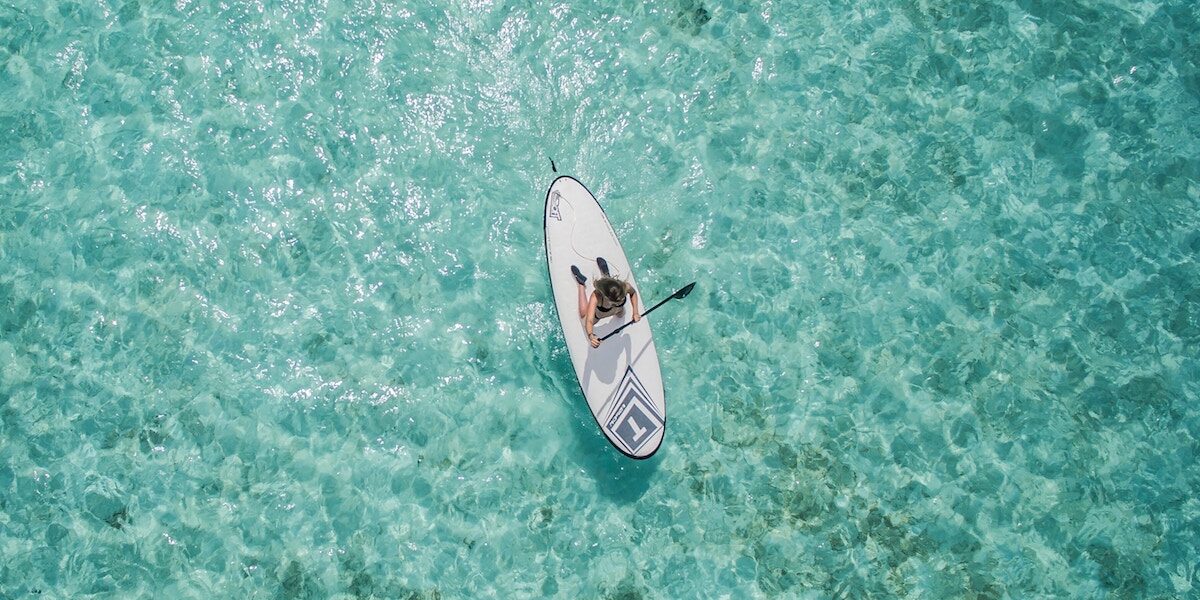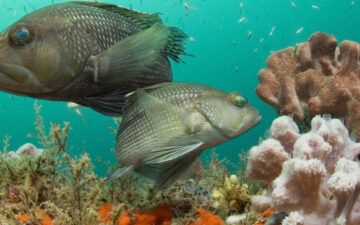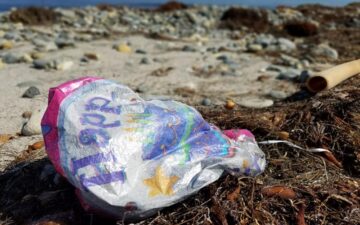The Ocean Foundation is the first “community foundation” for the oceans, with all the well-established tools of a community foundation and a unique focus on marine conservation. As such, The Ocean Foundation addresses two major obstacles to more effective marine conservation: a shortage of money and the lack of a venue in which to readily connect marine conservation experts to donors who wish to invest. Our mission is to support, strengthen, and promote those organizations dedicated to reversing the trend of destruction of ocean environments around the world.
4TH QUARTER 2005 INVESTMENTS BY THE OCEAN FOUNDATION
During the 4th Quarter of 2005, The Ocean Foundation highlighted the following projects, and made grants to support them:
| Title | Grantee | Amount |
|
Coral Fund Grants |
|
|
| Research regarding coral curio trade in China | Pacific Environment |
$5,000.00 |
| Living Archipelagos: Hawaii Islets Program | Bishop Museum |
$10,000.00 |
| Protection of coral reefs | Center for Biological Diversity |
$3,500.00 |
| Assessment of the economic valuation of coral reefs in the Caribbean | World Resources Institute |
$25,000.00 |
| Post-Hurricane Katrina and Rita reef surveys in the Flower Gardens National Marine Sanctuary | REEF |
$5,000.00 |
|
Climate Change Fund Grants |
|
|
| “Giving Voice to Global Warming” Research and outreach on climate change and its impact on the Arctic | Alaska Conservation Solutions |
$23,500.00 |
|
Loreto Bay Foundation Fund |
|
|
| Grants to promote educational opportunities and conservation projects in Loreto, Baja California Sur, Mexico | Multiple recipients in the community of Loreto |
$65,000 |
|
Marine Mammal Fund Grants |
|
|
| Protection of marine mammals | Center for Biological Diversity |
$1,500.00 |
|
Communication Fund Grants |
|
|
| Ocean conservation advocacy (at the national level) | Ocean Champions
(c4) |
$50,350.00 |
|
Education Fund Grants |
|
|
| Fostering youth leadership in ocean conservation initiatives | Ocean Revolution |
$5,000.00 |
|
Project Support Grants |
|
|
| Georgia Strait Alliance |
$291.00 |
NEW INVESTMENT OPPORTUNITIES
TOF staff chose the following projects at the forefront of ocean conservation work. We bring them to you as part of our constant search for important, breakthrough solutions in need of funding and support.
Who: Alaska Conservation Solutions (Deborah Williams)
Where: Anchorage, AK
What: The Giving Voice to Global Warming Project. More than anywhere else in the nation, Alaska is experiencing numerous, significant adverse impacts from global warming, both on land and in the ocean. Alaska’s sea ice is melting; the Bering Sea is warming; marine bird chicks are dying; polar bears are drowning; Yukon River salmon are diseased; coastal villages are eroding; forests are burning; oysters are now infected with tropical diseases; glaciers are melting at accelerated rates; and the list goes on. Alaska’s significant marine resources are particularly at risk from climate change. The purpose of the “Giving Voice to Global Warming Project” is to facilitate key Alaska global warming witnesses to speak out about the real, measurable, negative effects of global warming, in order to obtain necessary national and local responses. The project is led by Deborah Williams who has been actively involved in conservation and sustainable community issues in Alaska for more than 25 years. Following her appointment as Special Assistant to the Secretary of Interior for Alaska, in which position she advised the Secretary about managing over 220 million acres of national lands in Alaska and working with Alaska tribes and others associated with the Department’s broad natural and cultural resource jurisdiction, Ms. Williams spent six years as the Executive Director of the Alaska Conservation Foundation, winning many awards in that role.
Why: As a country, we must reduce our emissions of greenhouse gases and work to identify other solutions that foster resilience in vulnerable ecosystems, not only because of atmospheric and oceanic warming, but also because of oceanic acidification. Alaskans have a special role to play in promoting and advancing a climate change solutions agenda—they are on the front lines of its effects and the stewards of half our country’s commercial fish landings, 80 percent of the wild seabird population, and the feeding grounds of dozens of species of marine mammals.
How: The Ocean Foundation’s Climate Change Field-of-Interest Fund, for those who are concerned at the most global level about the long term viability of the planet and our oceans, this fund offers donors the ability to focus their giving on promoting the resilience of ocean ecosystems in the face of global change. It focuses on new federal policy and public education.
Who: Rare Conservation
Where: The Pacific and Mexico
What: Rare believes conservation is a social issue, as much as it is a scientific one. A lack of alternatives and awareness leads people to live in ways that are harmful to the environment. For thirty years, Rare has used social marketing campaigns, compelling radio dramas, and economic development solutions to make conservation attainable, desirable, and even profitable for people close enough to make a difference.
In the Pacific, Rare Pride has been inspiring conservation since the mid 1990s. Having made an impact on island nations from Papua New Guinea to Yap in Micronesia, Rare Pride aims to protect numerous species and habitats. Rare Pride has facilitated numerous positive results in conservation, including: establishing the national park status of the Togean Islands in Indonesia, which will protect its fragile coral reef and the multitude of marine life that lives there, and obtaining a legal mandate for a protected area to preserve the Philippine cockatoo’s habitat. Currently, campaigns are running in American Samoa, Pohnpei, Rota, and throughout the countries of Indonesia and the Philippines. A recent partnership with Development Alternatives Inc. (DAI), will enable Rare Pride to create a third training center in Bogor, Indonesia. Rare Pride is due to launch Pride campaigns out of this new training site by 2007, effectively reaching around 1.2 million people in Indonesia alone.
In Mexico, Rare Pride maintains an alliance with the Mexican government’s National Commission for Protected Areas (CONANP), with goals of implementing a Pride campaign in every protected area in Mexico. Rare Pride has already worked in protected areas across the country, including El Triunfo, Sierra de Manantlán, Magdalena Bay, Mariposa Monarca, El Ocote, Barranca de Meztitlán, Naha and Metzabok, and numerous locations on the Yucatan peninsula including Sian Ka’an, Ría Lagartos and Ría Celestun. Furthermore, Rare Pride has facilitated impressive results, including:
- In the Sian Ka’an Biosphere Reserve, 97% (up from 52%) of residents could indicate that they knew they lived in a protected area during a post-campaign survey;
- Communities in El Ocote Biosphere Reserve formed 12 brigades to fight destructive forest fires;
- Communities in Ría Lagartos and Ría Celestun created a solid waste recycling facility to address excess waste affecting marine habitats.
Why: For the past two years, Rare has been among 25 winners of the Fast Company / Monitor Group Social Capitalist Awards. Its successful approach has caught the eye and wallet of a donor who has offered Rare a $5 million challenge grant for which Rare must raise a match to continue its momentum and expand its work. Rare’s work is an important component of the strategy to protect marine resources at the local and regional level in a way that ensures the stakeholders play a strong, enduring role.
How: The Ocean Foundation’s Communication and Outreach Fund, for those who understand that if people don’t know, they can’t help, this fund sponsors noteworthy workshops and conferences for those in the field, general public outreach campaigns around key issues, and targeted communication projects.
Who: Scuba Scouts
Where: Palm Harbor, Florida
What: The scuba scouts is a unique underwater research training for young men and women from ages 12-18 from across the globe. These young leaders in training work in the Coral Reef Evaluation and Monitoring Program in Tampa Bay, the Gulf of Mexico and in the Florida Keys. The scuba scouts are under the tutelage of leading marine scientists from the Florida Fish and Wildlife Institute, NOAA, NASA and various universities. There are elements of the program that take place in the classroom and involve students who are not interested or able to partake in the underwater portion. The scuba scouts engage in monthly coral reef monitoring, coral transplants, data collection, species identification, underwater photography, peer reports, and in a number of dive certification programs (i.e. nitrox training, advanced open water, rescue, etc.). With adequate funding, the scouts are offered a 10-day experience in NOAA’s underwater research station Aquarius, communicating with NASA astronauts in outer space and partaking in daily dives in the Marine Sanctuary.
Why: The need for marine scientists is critical to help fill the numerous gaps in our understanding of the needs of marine ecosystems in an era of climate change and expanding human reach. Scuba scouts fosters an interest in marine sciences and encourages young leaders who will have the opportunity to take advantage of the ocean classroom. Government budget cuts have further reduced the opportunities for this unique program provides a hands on experience to young people who would not normally have access to scuba equipment, training, and an underwater curriculum of this magnitude.
How: The Ocean Foundation’s Education Fund, for those who recognize that the long term solution to our ocean crisis ultimately lies in educating the next generation and promoting ocean literacy, this fund focuses on the support and distribution of promising new curricula and materials that encompass social as well as economic aspects of marine conservation. It also supports partnerships that are advancing the field of marine education as a whole.
TOF NEWS
- A potential TOF donor trip opportunity to visit Panama and/or the Galapagos Islands aboard the Cape Flattery for the fall, more details to come!
- TOF breaks the half million mark in grantmaking to support efforts in worldwide ocean conservation!
- TOF grantee New England Aquarium was interviewed by CNN discussing the impacts of the Tsunami in Thailand versus the impacts of overfishing in the region, and the project was featured in the December issue of National Geographic magazine.
- On 10 January 2006 TOF hosted the Marine Working Group’s Meeting on Coral Curio and the Marine Curio Trade.
- TOF has been accepted into the Social Venture Network.
- The Ocean Foundation officially launched the Fundación Bahía de Loreto A.C. (and the Loreto Bay Foundation Fund) on 1 December 2005.
- We’ve added two new funds: See our website for more details on the Lateral Line Fund and Tag-A-Giant Fund.
- To date, TOF has raised over half of the match for The Ocean Alliance matching grant featured in the past two TOF newsletters—critical support for marine mammal research.
- TOF staff visited the island of St.Croix to research marine conservation efforts in the U.S. Virgin Islands.
IMPORTANT OCEANS NEWS
The Senate Commerce Committee hearings have been held on the proposed budget for the National Oceanic and Atmospheric Administration (NOAA) for Fiscal Year 2007. In order for NOAA to be fully operational, addressing every component of oceans and climate, organizations working on oceans issues believe that current proposals are way too low— falling below the FY 2006 funding level of $3.9 billion, which already cut important programs. For example, the President’s FY 2007 budget for NOAA has cut spending for the 14 National Marine Sanctuaries from $50 million to $35 million. Ocean research programs, tsunami and other observing systems, research facilities, education initiatives, and our national underwater treasures cannot afford to lose funding. Our legislators need to know that all of us depend on healthy oceans and support the full $4.5 billion funding level for NOAA.
HOW WE PICK OUR INVESTMENTS
We begin by searching the globe for compelling projects. The factors which may make a project compelling include: strong science, strong legal basis, strong socio-economic argument, charismatic fauna or flora, a clear threat, clear benefits, and a strong/logical project strategy. Then, much like any investment advisor, we use a 21-point due diligence checklist, which looks at the project’s management, financing, legal filings and other reports. And, whenever possible we also conduct in person interviews with the key staff on site.
Obviously there are no more certainties in philanthropic investing than in financial investing. Therefore, The Ocean Foundation Research Newsletter presents both facts and investment opinions. But, as a result of nearly 12 years of experience in philanthropic investing as well as our due diligence on the selected featured projects, we are comfortable with making recommendations for projects that make a difference to ocean conservation.
SOME FINAL WORDS
The Ocean Foundation is increasing the capacity of the ocean conservation field and bridging the gap between this time of growing awareness of the crisis in our oceans and true, implemented conservation of our oceans, including sustainable management and governance structures.
By 2008, TOF will have created an entirely new form of philanthropy (a cause-related community foundation), established the first international foundation focused solely on ocean conservation, and become the fourth largest private ocean conservation funder in the world. Any one of these achievements would justify the initial time and money to make TOF successful – all three make it a unique and compelling investment on behalf of the planet’s oceans and the billions of people who depend upon them for vital life support.
As with any foundation, our costs of operation are for expenses that either directly support grantmaking activities or direct charitable activities that build the community of people who care about the oceans (such as attending meetings of NGOs, funders, or participating on boards, etc.).
Because of the added necessity of scrupulous bookkeeping, investor reports, and other operational costs, we allocate about 8 to 10% as our administrative percentage. We expect a short term hike as we bring on new staff to anticipate our upcoming growth, but our overall goal will be to maintain these costs to a minimum, in keeping with our overarching vision of getting as much funding out to the field of marine conservation as possible.







